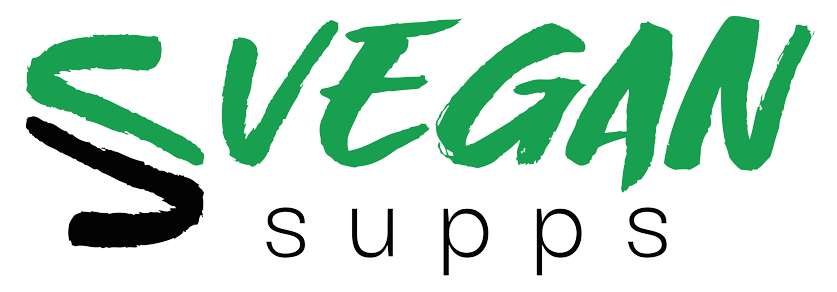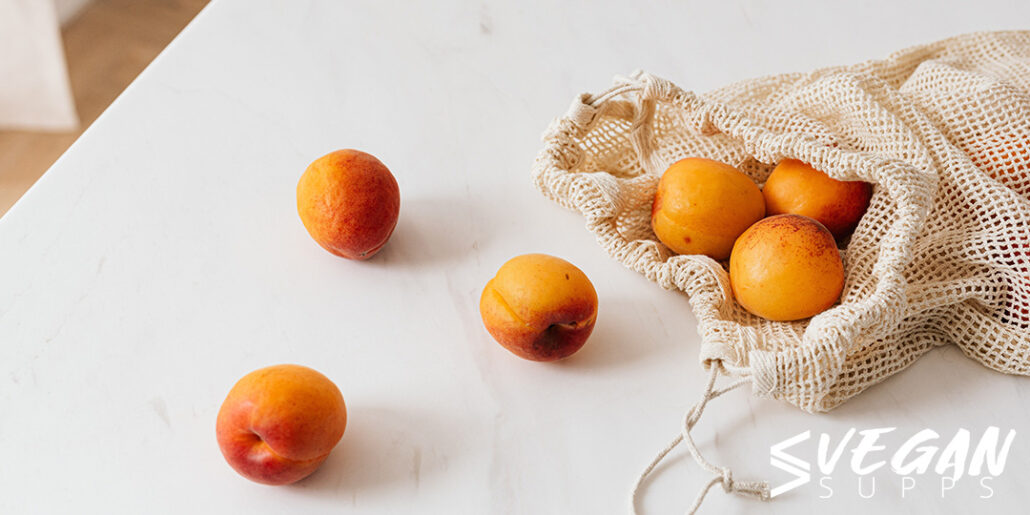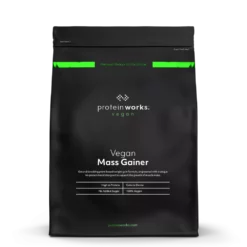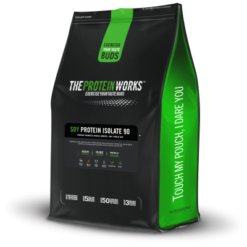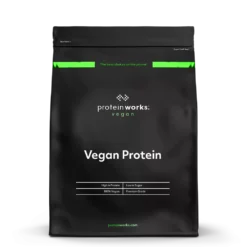Blog
Are you getting enough of these nutrients?
A vegan lifestyle is healthy, but does a plant-based diet provide you with all the vitamins and minerals your body needs? There are some nutrients you need to pay extra attention to if you adopt a vegan lifestyle comply. Below is an overview of all these nutrients.
Vitamin B12
Vitamin B12 plays a crucial role for many body processes. Protein metabolism, oxygen-transporting red blood cells, and nervous system health are just a few examples. If you get too little vitamin B12, it is more likely that you will suffer from anaemia, muscle weakness, infertility, nervous system damage, bone and heart disease, or even blindness. So it is very important that you take enough vitamin B12. But what is 'enough'? The recommended daily allowance for adults is 2.8 mcg.
Vitamin B12 is mainly found in animal products, so how do you easily meet the daily recommended amount if you have a vegan diet? The option often thought of first is to consume foods. For instance, you can find vitamin B12 in plant milk, soy products, breakfast cereals and nutritional yeast. Another option is to take supplements. These can also easily provide you with the sufficient daily intake.
Omega-3 fatty acids
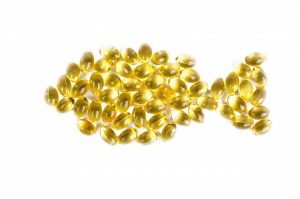 Omega-3 fatty acids play a structural role in the brain and eyes and protect you against cardiovascular disease. Moreover, they lower the risk of depression and attention deficit hyperactivity disorder. The best-known omega-3 fatty acids are alpha-linolenic acid (ALA), eicosapentaenoic acid (EPA) and docosahexaenoic acid (DHA).
Omega-3 fatty acids play a structural role in the brain and eyes and protect you against cardiovascular disease. Moreover, they lower the risk of depression and attention deficit hyperactivity disorder. The best-known omega-3 fatty acids are alpha-linolenic acid (ALA), eicosapentaenoic acid (EPA) and docosahexaenoic acid (DHA).
ALA is an essential fatty acid. This means that your body cannot make this fatty acid itself and you have to get it through your diet. ALA is found in vegetable oils (flaxseed oil, rapeseed oil, soybean oil, rapeseed oil), walnuts, chia seeds, tofu, and a little bit in meat and green leafy vegetables. The fatty acids EPA and DHA are mainly found in fish and seafood. EPA and DHA are not essential fatty acids, meaning that your body can make these itself. However, only in a small quantity and provided there are enough ALA has been absorbed into your body.
1% of the calories you need in a day should come from ALA. For EPA and DHA is the recommended daily allowance 200 mg. EPA and DHA are difficult to ingest if you have a vegan diet. It is therefore advised to consider supplements. This way, you are assured of a sufficient daily intake. A popular Vegan Omega3 supplement is TPW - Vegan Omega 3:6:9 Ahiflower Oil.
Vitamin D
 Vitamin D is a fat-soluble vitamin that helps increase the absorption of calcium and phosphorus from your gut. This vitamin also affects memory, muscle recovery, and mood. In addition, it contributes to good bone health. Without sufficient vitamin D, your bones can weaken and you are at increased risk of depression and diabetes. The daily recommended intake is 10 mcg for adults.
Vitamin D is a fat-soluble vitamin that helps increase the absorption of calcium and phosphorus from your gut. This vitamin also affects memory, muscle recovery, and mood. In addition, it contributes to good bone health. Without sufficient vitamin D, your bones can weaken and you are at increased risk of depression and diabetes. The daily recommended intake is 10 mcg for adults.
Unfortunately, few foods naturally contain vitamin D, and those that do often do not adequately meet daily requirements. On top of that, most of these foods come from animals. This makes it even more difficult for people on a vegan diet. When using vitamin pills, check whether they contain Vitamin D.
Iron
Iron is responsible for making red blood cells and DNA. It also plays an important role in transporting oxygen through the blood to maintain energy levels. Too little iron can lead to anaemia, fatigue, dizziness, headaches, weakness, pale skin and impaired immune function. The recommended daily allowance is 11 mg for adult men, and 16 mg for adult women.
Iron comes in two forms: heme iron and non-heme iron. Heme iron comes from animal products, non-heme iron from plants. Heme iron is more easily absorbed in the body than non-heme iron, which is why vegans are often recommended to aim for 1.8 times the normal recommended daily allowance. Iron-rich products include beans, spinach, peas, dried fruits (such as prunes and apricots), tofu, cruciferous vegetables (think broccoli and cauliflower), fortified breakfast cereals, nuts and seeds. If it turns out that you still do not get enough iron through your diet, you can use a supplement, as for all the other nutrients mentioned.
Calcium
Calcium is a mineral that is crucial for proper nerve and muscle function, and the building and maintenance of bones and teeth. In addition, it plays an important role in blood clotting and transport of other minerals in the body. Calcium is found in milk, cheese, vegetables, nuts and legumes. Plant sources of calcium include pak choi, kale, spinach, watercress, broccoli, chickpeas, soy and black beans, almonds, and fortified plant milk and juices. However, these plant sources are not absorbed into the body as well as dairy products. If there are no dairy products in your diet, the chances of not enough calcium are high. Too little calcium, increases the chances of developing impaired bone development and osteoporosis over time.
The recommended daily allowance is 1000-1200 mg for adults. To make sure you get enough of this mineral, there is recommended to take a calcium supplement once a day. Also check out our blog 7 tips to eat healthier!
Zinc
Zinc is a mineral involved in metabolism. Furthermore, zinc has a crucial function in protein building, tissue growth and development, and proper immune/immune system function. Insufficient intake can lead to developmental problems, impaired immune system, loss of appetite, hair loss, and slow wound healing. The recommended daily allowance is 7 mg for women, and 9 mg for men.
Zinc is found in small amounts in, for example, vread, cheese, cereal products, nuts and seafood such as shrimps and mussels. However, zinc absorption from some plant foods is limited due to their phytate content. To avoid any risk of zinc deficiency, taking supplements is a good choice.
Do you follow a vegan diet? Then you have probably read this entire blog (very wise!). Make sure you get enough vitamins and minerals. There are several vitamin pills that contain iron, calcium and zinc in addition to vitamins. For the Omega 3, we recommend TPW - Vegan Omega 3:6:9 Ahiflower Oil.
